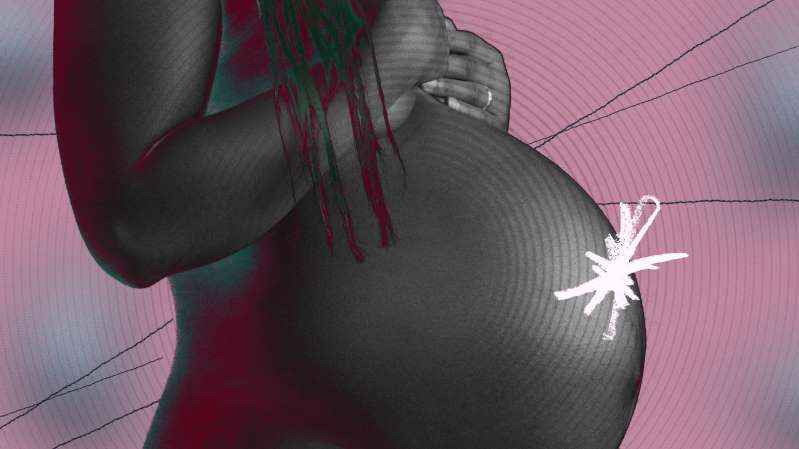
Inequality is rampant throughout the health care system: Women of color are more likely to die of breast cancer, heart disease, and COVID-19, and more likely to report chronic, severe anxiety. There are many reasons—gaps in biomedical research, deliberate discrimination and racism, lack of resources, lack of empathy—all of which come to a head when a Black woman gets pregnant. Black women in the United States are three to five times more likely to die from pregnancy or postpartum issues than white women, a maternal mortality crisis that cannot be ignored. In Glamour’s Black Maternal Health series, we’re sharing these stories—and solutions.
Freedom Smith was scared to scream during childbirth. She was a 21-year-old single mother-to-be with no insurance, no family support, and no stable prenatal care, and the words of the staff in the maternity ward had weighed heavily on her mind. “I had a midwife who literally told me that the young girls who screamed when they’re giving birth, they don’t give drugs to,” the now 50-year-old says. “They would just let you sit there.”
From the time she arrived at the hospital, Smith felt disregarded. She walked what felt like a mile from the entrance of the hospital down a long corridor and finally to the appropriate desk where she checked in and sat in the last available wheelchair. She was asked to get up when another woman, who was white, went into labor, she says. “She needs this wheelchair more than you,” she recalled a hospital staffer telling her in an angry tone. In pain she waited until another patient who was called to be seen told a nurse to take Smith instead.
By the time she was taken back, she was five centimeters dilated ready to push, and in severe pain. “In my mind, I kept thinking if I started screaming, they’re really gonna treat me worse than I was already being treated,” she says. “Nobody was talking to me, telling me what was going on or whether to push, pull, or anything.”
At some point, Smith says, she went into cardiac arrest. “Literally my life was in the hands of strangers—not very compassionate, not very caring, very distant, very cold,” Smith says. “It was traumatic for me, and it was very good birth control because that is the only child I have.”
Throughout the ordeal there was an eerie lack of communication about what was happening.
It’s not enough to just survive childbirth.
Black women are aware that the statistics are against us—that we are three to four times more likely to die during pregnancy, childbirth, and the period immediately after. Black women are also two times more likely to experience severe maternal morbidity, defined by the CDC as adverse health conditions caused or worsened by pregnancy, such as cardiac arrest, extreme blood loss, aneurysm, and sepsis. These occurrences are often called near misses.
This article was originally posted on msn.com. To view the article in its entirety, click here.
